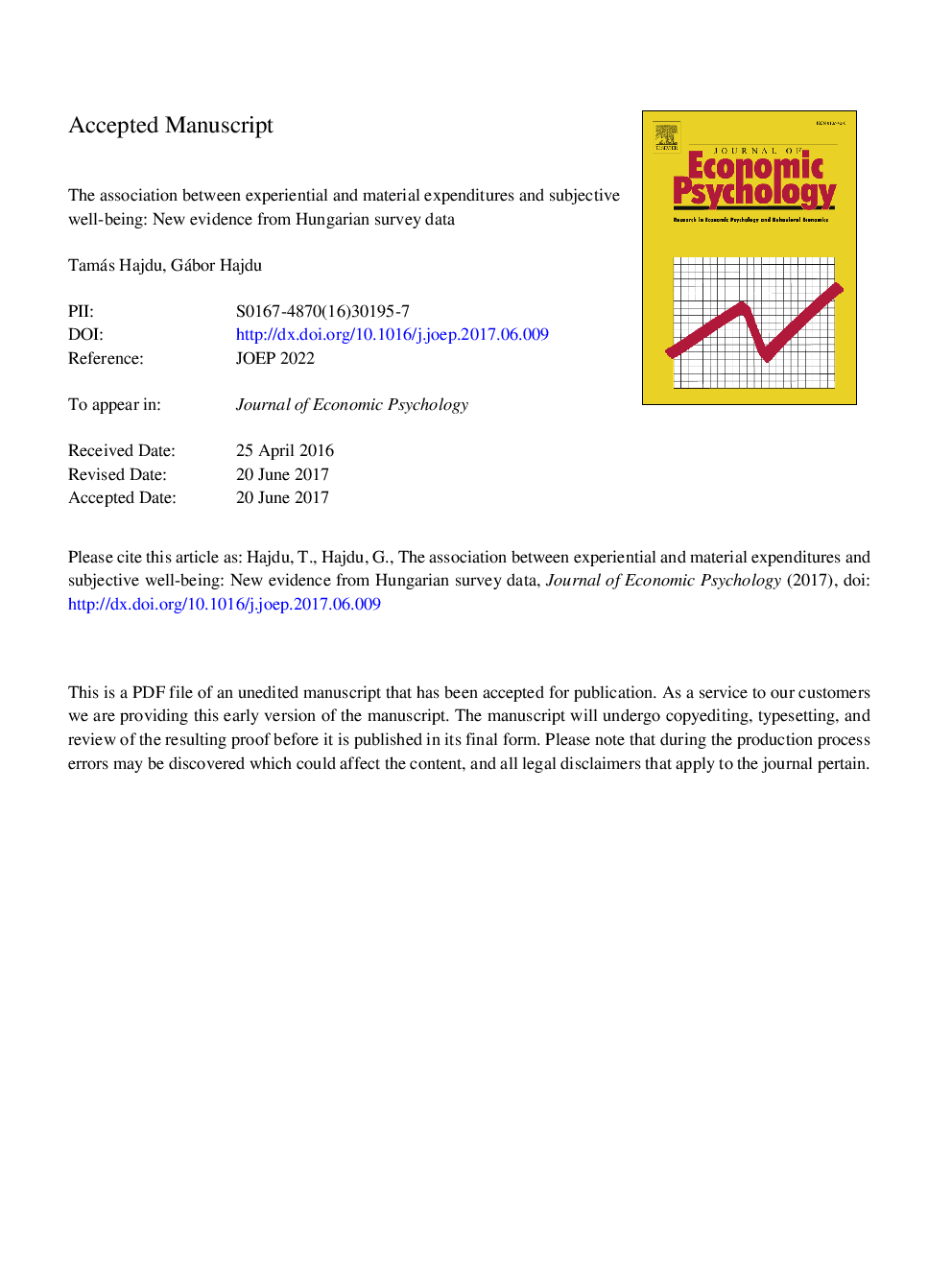ترجمه فارسی عنوان مقاله
ارتباط بین هزینه های تجربی و مادی و رفاه ذهنی: شواهد جدید از داده های بررسی مجارستان
عنوان انگلیسی
The association between experiential and material expenditures and subjective well-being: New evidence from Hungarian survey data
| کد مقاله | سال انتشار | تعداد صفحات مقاله انگلیسی |
|---|---|---|
| 121728 | 2017 | 45 صفحه PDF |
منبع

Publisher : Elsevier - Science Direct (الزویر - ساینس دایرکت)
Journal : Journal of Economic Psychology, Volume 62, October 2017, Pages 72-86
ترجمه چکیده
در دهه گذشته، تعدادی از مطالعات با استفاده از طرح های تجربی بیان کرده اند که صرف پول بر تجارب و نه کالاهای مادی موجب می شود که مردم شادتر شوند. در این تحقیق از یک رویکرد نظرسنجی برای بررسی روابط بین هزینه های تجربی و مادی و رضایت از زندگی استفاده شده است. در دو مطالعه بر اساس داده های مقطعی از نمونه های ملی نماینده در مجارستان، ما مدل های خطی و غیر خطی را برآورد کردیم. ما هیچ شواهد قابل توجهی از بازگشت بیشتر دریافت شده در هنگام خرید تجارب دریافت نکردیم. حتی در مدل های غیر خطی، تفاوت میان سودمندی های حاشیه ای در هر نرخ بودجه آماری قابل توجه نبود، هر چند که حاشیه سود خرید های تجربی خطی بود، در حالی که سود حاشیه خرید مواد صرفا کاهش می یافت. با این وجود، نتایج ما نشان می دهد که انتقال مجدد از هزینه های فردی به طور متوسط (هزینه بیشتر برای تجارب و کمتری در کالاهای مادی) ممکن است با یک رفاه کمی بیشتر همراه باشد.

